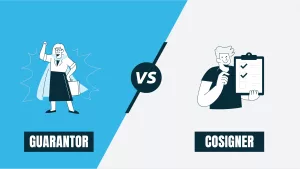Difference between Contract Deposit and Down Payment (2025)
Go Back To Previous PageIn New York City real estate, the terms “contract deposit” and “down payment” are often confused by first-time buyers and new agents, but they have different meanings.

Contract Deposit and Down Payment
- The down payment is the portion of the purchase price that a buyer pays in cash,
- while the contract deposit is the specific amount paid at the time of signing the contract.
Typically, the customary contract deposit in NYC is around 10%, although you can negotiate this amount.
If the total down payment exceeds the contract deposit, the buyer pays the remaining balance at closing. For example, if you’re making a total down payment of 20% and the contract states that a 5% earnest money deposit is required upon signing, you will have paid 5% as the contract deposit. This means you only need to pay the remaining 15% at closing.
If your total down payment is 10% and the contract deposit is also 10%, then you won’t need to bring any additional down payment funds to the closing. However, you will still need to bring funds to cover your closing costs as the buyer.
It’s important to note that the amount of the contract deposit cannot exceed the total down payment. For instance, if a buyer’s total down payment is 5%, the contract deposit cannot exceed 5%.
In New York City, a typical down payment is 20%. This is largely due to the fact that most apartments for sale in NYC are co-ops, which typically require a down payment of at least 20%. Some stricter co-ops may even demand a minimum down payment of 25%, 30%, or, in some cases, 50%.
While some condo buildings in New York City have minimum down payment requirements, such instances are relatively rare.
There is usually no minimum down payment requirement when buying a condo or a house, but the final decision depends on your lender and the seller regarding the acceptable minimum down payment percentage.
Remember, the seller has the ultimate authority to choose whom to sell their property to, and consequently, they can set the minimum deposit and down payment percentage that they find acceptable.
Just because your lender is willing to offer you 95% financing does not mean a seller does not have to accept such a low down payment. In New York City (NYC), low down payments are particularly uncommon due to the strong market and the high number of financially qualified buyers looking for homes.
In a best and final offer scenario, a seller is likely to prefer the offer with the highest down payment percentage and the fewest contingencies. Therefore, if a seller in NYC receives multiple offers, they will probably reject a contract deposit of less than 10%.
Even if there are no competing offers, a seller is unlikely to agree to a contract deposit below 10%, as that is the standard practice in NYC.
Bottom Line: Contract Deposit and Down Payment
In summary, the down payment is the portion of the purchase price that is paid in cash. However, the contract deposit refers to the specific amount paid at the time of signing the contract.
If the total down payment exceeds the contract deposit, the remaining balance is due at closing. Additionally, the earnest money contract deposit can never be greater than the down payment.


